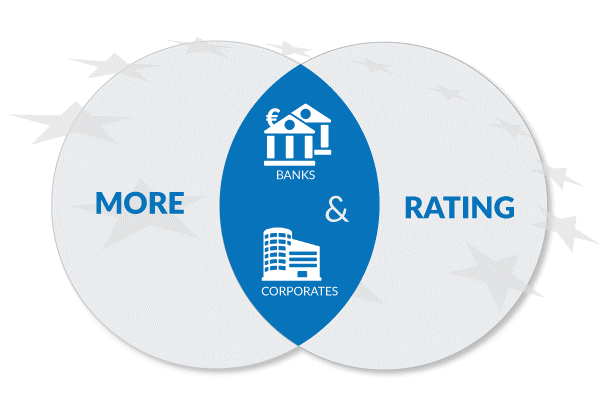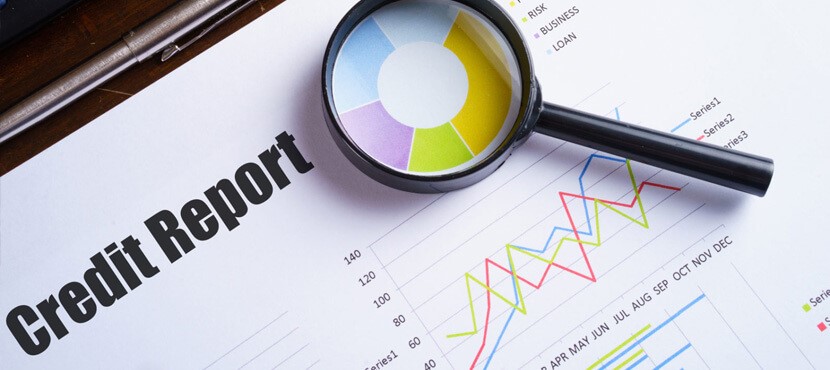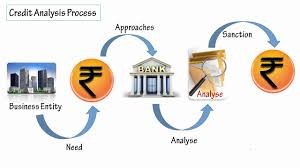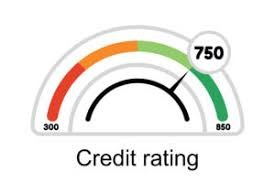Credit Rating

Credit Rating
Credit Rating is an assessment of the borrower (be it an individual, group or company) that determines whether the borrower will be able to pay the loan back on time, as per the loan agreement. A good credit rating depicts a good history of paying loans on time in the past. This credit rating influences the bank’s decision of approving your loan application at a considerate rate of interest.
How do Credit Ratings Work in India?
As a matter of fact, every credit rating agency has their algorithm to evaluate the credit rating. However, the major factors are credit history, credit type and duration, credit utilization, credit exposure, etc. Every month, these credit rating agencies collect credit information from partner banks and other financial institutions. Once the request for credit rating has been made, these agencies dig out the information and prepare a report based on such factors. Based on that report, they grade every individual or company and give them a credit rating. This rating is used by banks, financial institutions and investors to make a decision of investing money, buying bonds or giving loan or credit card. The better is the rating, more are the chances of getting money at payable interest rates.
- CRISIL
- ICRA
- CARE
- ONICRA
- SMERA
- Brickwork Ratings India Private Limited
Difference Between Credit Rating and Credit Score
Often, these two terms are interchanged but they are not exactly same. Here are the differences between the two:Credit Rating is basically a credit worthiness of a business or a company. However, it is not really used to individuals like us. It gives an understanding the ability of the company. These ratings are based on corporate financial instruments and usually denoted in alphabetical symbols. Higher the rating, lower is the probability of default pays.
Whereas credit score is a number, calculated by credit bureau and given to individuals based on the credit information report. This number can be in between 300 and 900. Credit report plays an important role in loan and credit card approval process.
Credit Score

A credit score is the statistical analysis of a person’s past credit dealing and represents his or her credit discipline. The credit score is assessed based on the transactions in credit products like home loans, auto loans, credit cards, personal loans and overdrafts. Credit scores can be generated by credit institutions and even by self. The RBI has made it obligatory for all Credit Information Companies (CICs) in the country to give a Free Full Credit Report (FFCR) without any charge, on request, to individuals whose credit history is available once a calendar year.
A credit score is a review of a user’s credit report, and through advances, analytics turns the data into a 3-digit number representing the amount of risk the individual brings to a particular transaction. Credit score values range from 300 to 900.
Credit Scoring Model
Credit Information Companies (CIC) typically build scores using three historical data files:- Defaults on previous credit transactions.
- Payment behaviour/ Payment history.
- Previous searches/ inquiries.

Managing the Credit Score
The following points are essential in maintaining an individual’s credit score effectively.Credit Utilization
Effective credit utilisation is a significant step in an individual’s credit score. If a person’s safe limit is INR 10,000 and only used INR 5,000, then the person is considered a very reliable customer. If a person’s safe limit is INR 10,000 and uses it entirely, and seeks further credit, then the person would be over lagging themselves, and their score could take a hit. Unnecessary and frequent shopping expenses for credit or too many new accounts can be considered as a sign of being over-hungry for loans and have a negative impact on the score.Payment Defaults
A person’s due on the past accounts are taken into consideration. This would include by how many days and by how much the person has defaulted.
Role of Rating Agencies in Capital Markets
Rating agencies assess the credit risk of specific debt securities and the borrowing entities. In the bond market, a rating agency provides an independent evaluation of the creditworthiness of debt securities issued by governments and corporations. Large bond issuers receive ratings from one or two of the big three rating agencies. In the United States, the agencies are held responsible for losses resulting from inaccurate and false ratings.
The ratings are used in structured financial transactions such as asset-backed securities, mortgage-backed securities, and collateralized debt obligations. Rating agencies focus on the type of pool underlying the security and the proposed capital structure to rate structured financial products. The issuers of these products pay rating agencies to not only rate them, but also to advise them on how to structure the tranches.
Rating agencies also give ratings to sovereign borrowers, who are the largest borrowers in most financial markets. Sovereign borrowers may include national governments, state governments, municipalities, and other sovereign-supported institutions. The sovereign ratings given by a rating agency shows a sovereign’s ability to repay its debt. The ratings help governments from emerging and developing countries to issue bonds to domestic and international investors. Governments sell bonds to obtain financing from other governments and Bretton Woods institutions such as the World Bank and the International Monetary Fund.
Purpose of Credit Rating Agencies

Credit rating agencies assign ratings to any organization that issues debt instruments, including private corporations and all levels of government. Due to the fact that investors need to know they are receiving adequate compensation for the risk they are taking by holding an investment, the ratings the agencies issue are essential to the financial industry.
The interest rate attached to a debt is inversely related to its level of risk. Therefore, since investors use the opinions of rating agencies as metrics for the level of risk attached to a debt instrument, credit ratings play a key role in the interest rates of different debt securities.
Advantages of Credit Agencies

- They Help Good Institutions Get Better Rates Institutions with higher grade credit ratings are able to borrow money at more favorable interest rates. Accordingly, this rewards organizations that are responsible about managing their money and paying off their debt. In turn, they will be able to expand their business at a faster rate, which helps stimulate the economy’s expansion as well.
- They Warn Investors of Risky Companies Investors always want to know the level of risk associated with a company. This makes rating agencies very important, as many investors wish to be forewarned of particularly risky investments.
- They Provide a Fair Risk-Return Ratio Not all investors are opposed to buying risky debt securities. However, they want to know that they are going to be rewarded if they take on a high level of risk. For this reason, credit rating agencies will inform them of the risk levels for every debt instrument and help ensure that they are properly compensated for the level of risk they take on.
- They Give Institutions an Incentive to Improve A poor credit rating can be a wake-up call for institutions that have taken on too much debt or haven’t demonstrated that they are willing to be responsible about paying it back. These institutions are often in denial of their credit problems, and need to be alerted of any potential problems from an analyst before they make the necessary changes.
Disadvantages of Credit Rating Agencies
 Unfortunately, although credit rating agencies serve a number of purposes, they are not without flaws:
Unfortunately, although credit rating agencies serve a number of purposes, they are not without flaws:
- Evaluation Is Highly Subjective There are no standard formulas to establish an institution’s credit rating; instead, credit rating agencies use their best judgement. Unfortunately, they often end up making inconsistent judgments, and the ratings between different credit rating agencies may vary as well.
- There Can Be Conflict of Interest The credit rating agencies usually provide ratings at the request of the institutions themselves. Although they sometimes conduct unsolicited evaluations on companies and sell the ratings to investors, they usually are paid by the very same companies they are rating.
- Ratings Aren’t Always Accurate Although credit rating agencies offer a consistent rating scale, that does not mean that companies are going to be rated accurately. For many years, the credit ratings of these agencies were rarely questioned. However, after rating agencies provided AAA ratings for the worthless mortgage-backed securities that contributed to the recession, investors don’t have nearly as much faith in them. Their ratings are still referenced by almost everyone, but their credibility has taken a serious hit.
What is mean by Good Credit Scores ?

Whether a score is good or not would depend on the bank’s internal policy, its customer profile and its risk appetite. Some banks may perceive 700 as a decent score and another may not. Therefore, in India, different banks will rank different scores as good. Still, any score over 700 may be considered good by banks. However, a credit score is only an indicative tool for managing risks, and its effectiveness depends on the internal control mechanism of the bank in question. An objective thing such as credit score will not only help a bank to reduce defaults but also make loan disbursing much faster, improve operational efficiency and brings costs down.
A good credit score will indicate the character of the borrower concerning financial matters. The following are some indicators of a good score.
- Evidence of financial discipline.
- If the borrower has defaulted payments once or twice due to reasons beyond their control, those will show up as clear aberrations in overall consistent payment history.
- The longer the credit history, the better. The lender’s assessment presumable improves as he gets more significant spans of repayment. One should be cautious about closing old accounts and opening new ones.
- It helps in analysing one’s right financial standing and make plans for future finances.
- One can be on top of their borrowing and avoid debt traps.
- With a Credit Information Report in hand, he or she will be in an excellent position to make decisions concerning availing new forms of credit, while also being able to extract the best possible rates from banks or lenders.
- It helps in cultivating financial discipline.
- On time loan EMI payments.
- Regular payments of credit card bills.
- Completely paying off credit card bills rather than paying a minimum due amount always.
- Avoiding over-leveraging.
- Managing strong financial records.
- Multiple forms of credit (such as unsecured personal loans) among family member.
- Proper utilisation of approved credit limit.
- Ensuring banks and other financial institutions with a record and submit positive information to CIC’s.
- Requesting to maintain a copy personally rather than through financial institutions.
- Multiple credit report enquiries by banks and institutions.
- Bouncing of Cheques/ dishonours.
- Irregular repayment of loans.
- Defaulting on credit card bills/ late payments or consistent part payments.
- Too many unsecured credits such as multiple personal loans.
- Multiple applications for unsecured loan getting rejected.
- Defaulting as a guarantor.
- High utilisation of approved credit limit or overshooting the limit.
- Error in records by banks and other financial institutions.

- Even after all these guidelines, there are series of high-profile disasters in stock markets including AAA-rated instruments. It means there is serious credibility issue of credit rating agencies and the questionable methods adopted by them. Such manipulation can happen only under two conditions either rating agencies are not competent, or they have a defective methodology for the rating of the debt instruments.
- If rating agencies have credible and time-tested methodology, in that case, there is a deliberate attempt to suppress facts due to some motivation or some understanding between the credit rating agencies and the promoters of the instrument which is to be rated. In both the cases, there must be a proper investigation and suitable action should be taken to send a message to concerned agencies to stop manipulating behaviour.
- Is this the way rating agencies want to earn the confidence of regulators and want to protect public trust? That is why EU wants to reduce the dependency on a few Rating Agency and want full disclosure by fundraising entities. The issue is why the status of various litigations are missing from IIFL prospectus? Media and regulators must scrutinize all the rating certificates of all IPOs, new offers. Promoters and rating agencies must be made accountable for hiding the facts which are already in the public domain.
- Concerned Authorities must study this case in detail and identify the reasons for hiding the facts from the investors. If required, modify the Guidelines for Credit Rating Agencies Reporting formats to avoid stale and misleading rating certificates for raising money from the market. After NPAs due to bad project evaluations by top bankers, now this is time to ensure tight regulations for credit rating agencies. Please note no one is saint in this business.
- Top Management and largest shareholder of Credit Rating agencies must be made accountable for their acts and omissions. Their act is shaking the confidence about governance in India and bringing a bad name to the country. No should be allowed to play with the national interest and interest of minority shareholders.
What We Offer
Packages & Pricing
6499
Basic
10000
Standard
19999
premium
FAQs For Private Limited Company Registration
LicenseHub - Copyright 2023. All rights reserved.
- Designed By-WebsApex

